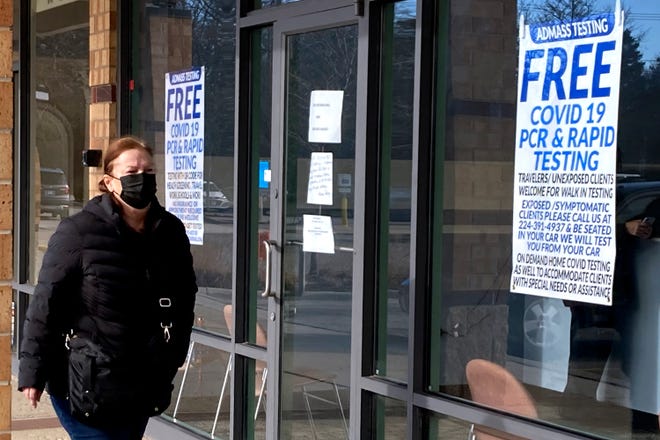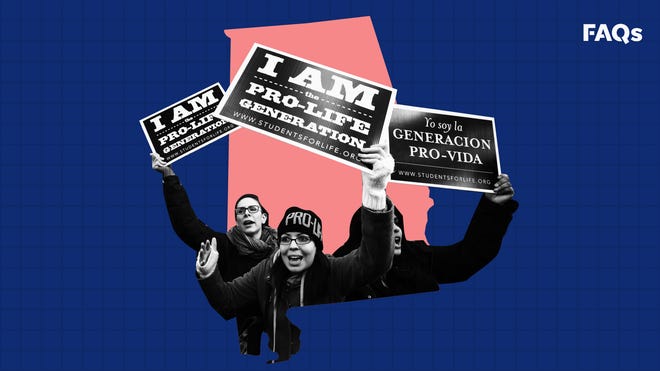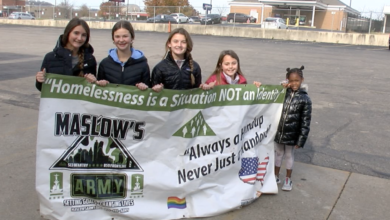
The subvariant of omicron known as “stealth omicron’’ – technically BA.2 – has been gaining attention as it spreads to about 50 countries, including the U.S.
The notion that it might be more contagious than the original omicron variant – BA.1 – is enough to raise concerns, considering how much disruption the first version has caused in taking over delta as the dominant strain of the coronavirus.
Dr. Rochelle Walensky, director of the Centers for Disease Control and Prevention, acknowledged in a news briefing the slightly superior infectiousness of BA.2, but said it’s linked to only 1.5% of the country’s cases.
“What we know about BA.2 so far is that it does have a modest transmission advantage over BA.1. However, it’s not nearly the transmission advantage that we’ve seen between omicron and delta,’’ Walensky said. “We have not seen any studies that suggest it’s more severe, nor have we seen studies that suggest that it will evade our vaccines any more so than omicron has already, and in fact that our vaccines would work just like they have with omicron.’’
Public health experts have said the subvariant may slow down the current drop in infections across the nation, but likely won’t stop it. That’s typically what has happened in other countries, with some exceptions like Denmark, where BA.2 has become dominant.
Walensky said pointed out that has coincided with the relaxation of mitigation measures, adding, “Which is why we’re currently keeping those in place, among the reasons.’’
Also in the news:
►The U.S. is on the brink of surpassing 900,000 COVID-19 deaths amid positive data indicating daily infections and hospitalizations are decreasing. The respite, however, could be short-lived.
►Gay and lesbian adults report higher COVID-19 vaccination rates than heterosexual adults, according to a CDC study published Friday. The study, which is based on a national survey conducted by the nonprofit research institute NORC at the University of Chicago, showed 85.4% of gay and lesbian adults over age 18 had received at least one dose of a COVID vaccine compared to 76.3% by heterosexual adults.
► Austria became the first country in the European Union to mandate COVID-19 vaccinations for all adults after the upper house of the Austrian parliament voted in favor of the law Thursday, the Guardian reported.
► For more than two years, the isolation of the Pacific archipelago nation of Tonga helped keep COVID-19 at bay. But last month’s volcanic eruption and tsunami brought outside deliveries of desperately needed fresh water and medicine — and brought the virus.
► Amid extraordinary COVID-19 restrictions, Bob Costas says NBC has been dealt "the worst hand imaginable" with the Beijing Olympics, which kicks off Friday.
📈 Today's numbers: The U.S. has recorded more than 75 million confirmed COVID-19 cases and more than 897,000 deaths, according to Johns Hopkins University data. Global totals: More than 388 million cases and over 5.7 million deaths. More than 212 million Americans — 63.9% — are fully vaccinated, according to the Centers for Disease Control and Prevention.
📘 What we're reading: Contrary to scientific evidence and warnings from health agencies, hundreds of doctors nationwide continue to prescribe ivermectin – encouraged by a little-known national group of physicians – to prevent and treat COVID-19. During the omicron wave, they've been busier than ever, writing tens of thousands of prescriptions.
Keep refreshing this page for the latest news. Want more? Sign up for USA TODAY's free Coronavirus Watch newsletter to receive updates directly to your inbox and join our Facebook group.
Research projects US will fall short of WHO 70% vaccination rate target
The U.S. is expected to fall short off the World Health Organization's midyear vaccination target rate of 70%, according to Our World in Data, an online research and data publication.
The U.S. is one of over 100 countries the organization predicts will fall short of the target rate.
Countries including Canada, Brazil, China, Australia and much of the European Union have already passed the target of vaccinating at least 70% of its population.
Most of Latin American and Asia have also either reached the target or are expected to do so by mid-2022, while many African countries are also projected to fall short of the target rate.
Our World in Data's predictions are based on the current rate at which countries are vaccinating their populations. As a result, "the projections do not take into account future increases or decreases in the speed of vaccination, which could result from changes in eligibility criteria, vaccine deliveries or shortages, or new government policies."
Nursing shortage has hospitals considering foreign healthcare workers
With American hospitals facing a dire shortage of nurses amid a slogging pandemic, many are looking abroad for healthcare workers.
And it could be just in time.
There’s an unusually high number of green cards available this year for foreign professionals, including nurses, who want to move to the United States — twice as many as just a few years ago. That’s because U.S. consulates shut down during the coronavirus pandemic weren’t issuing visas to relatives of American citizens, and, by law, these unused slots now get transferred to eligible workers.
Amy L. Erlbacher-Anderson, an immigration attorney in Omaha, Nebraska, said she has seen more demand for foreign nurses in two years than the rest of her 18-year career. And this year, she said, it’s more likely they’ll get approved to come, so long as U.S. consular offices can process all the applications.
Why cold temperatures could affect results of your at-home COVID test
At the same time most Americans are facing cold fronts and winter storms, they're also expecting their at-home COVID-19 tests from the government to arrive in the mail.
Most at-home COVID-19 test brands recommend storing the tests above 35 degrees. The liquid reagent inside the cartridge that comes with the at-home tests is susceptible to freezing, and if that happens the accuracy of the results decreases, Cindy Pins, associate professor of epidemiology at the University of Florida, told USA TODAY.
With the federal government launching a program to send free at-home COVID-19 tests to Americans who sign up through the website COVIDTests.gov, 1 billion tests have been ordered for distribution to Americans through via the United States U.S. Postal Service.
But could prolonged cold or freezing temperatures affect the results of the government-sent tests? It depends on how long it's been cold, experts said.
— Gabriela Miranda, USA TODAY
'I miss everything': For seniors, depression rates soar amid pandemic
Even before the pandemic, advocates and health experts had warned of loneliness and social isolation among the nation’s older adult population. Now, nearly two years in, they say government mandates and precautionary measures meant to control the virus by limiting social interaction have taken an emotional, mental and physical toll.
Geriatric workers say rates of depression and anxiety have risen among their clients in that time, and in more severe cases, those conditions have led to cognitive and physical deterioration, or worse.
“People experienced cognitive decline from having no stimulation, and that has persisted,” said Stacey Malcolmson, Senior Source president and CEO. “For those with underlying mental health conditions like dementia or Alzheimer’s, we’ve been finding that that cognitive decline is irreversible.”
— Marc Ramirez, USA TODAY
Contributing: The Associated Press
Source link










